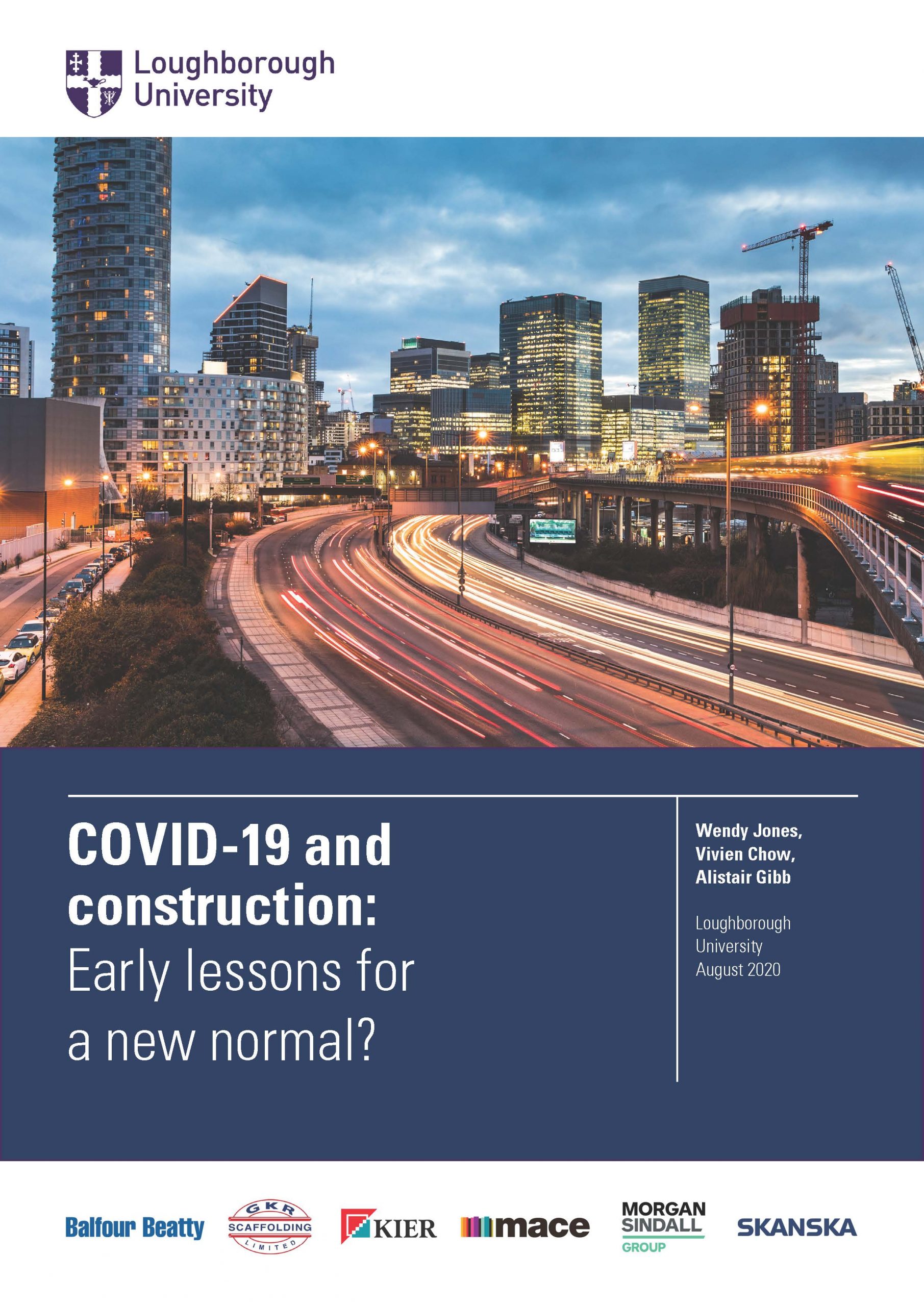COVID19 and Construction – Early lessons for a new normal?

Please click on the Download Button at the bottom of the page to see the full Case Study
This research was commissioned to provide a rapid ‘snapshot’ of the impact of COVID-19 on construction. There are opportunities for further work to build on the findings: to improve understanding of the impact of the changes made, what benefits may arise from their adoption long term and what measures might be needed to ensure that new ‘good behaviours’ are retained.
The response to COVID-19 seems to have been rapid and effective on the six projects studied for this research. Site layouts and working practices have seen substantial changes in a short space of time and these changes have been successful and generally well received.
There is emerging evidence of additional benefits to worker effectiveness and productivity and a perception of improved safety and health. More time is spent planning work tasks; with frontline workers typically deployed in smaller groups than usual and trades working in sequence rather than side by side.
This has led to increased worker effectiveness and productivity, and improved housekeeping on most sites. It has helped to mitigate project challenges arising from other COVID-19 impacts, such as a reduced workforce and problems with material supply. There may well be long term gains from maintaining these ways of working.
There is a perception that general safety and health risk might have been reduced as a consequence of increased planning, fewer workers and improved housekeeping. Changes made to induction processes and to welfare and hygiene arrangements were reported and have the potential to improve the safety, wellbeing and motivation of the workforce if maintained longer term. At the same time, there have been very high demands on many of the staff involved in managing or re-planning sites and projects, with adverse impacts on wellbeing for some.
It is important that relevant employees have time and opportunity to recover and regroup, particularly as a ‘second wave’ of COVID-19 could make further demands. There have been increased expectations on the supply chain, and particularly black hat supervisors, with increased responsibility for worker engagement, briefing, induction; and increased communication between trades to facilitate safe working.
This highlights the longterm importance of supporting and developing these individuals and the responsibility on Tier 1 contractors to help their supply chains develop. Employees who were able to work from home did so, and substantial benefits were reported in terms of cost, productivity and flexibility. However, if home working is to remain widespread in future (which appears likely), it needs to be carefully managed for the best outcomes, as there was also some evidence of social isolation, unclear expectations and over-working.
Occasional working from home for site-based staff is likely to be at least as important as designating some staff as home workers. Increased use of technologies for remote meetings and virtual site visits has been very successful. These have good potential for long term use to enable cost savings, improved productivity and enhanced engagement.
















